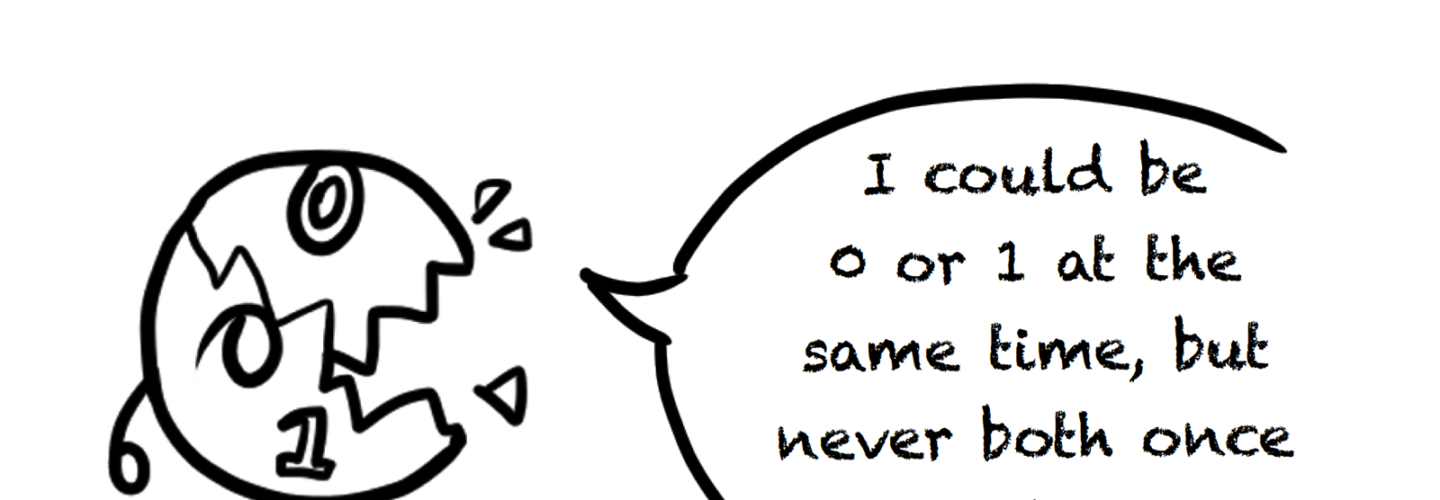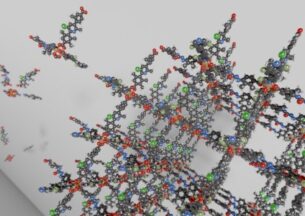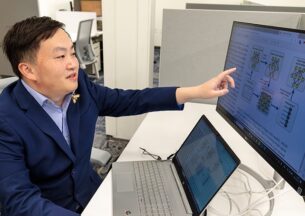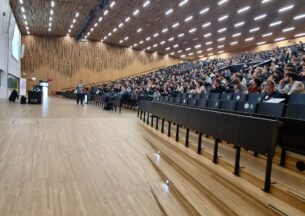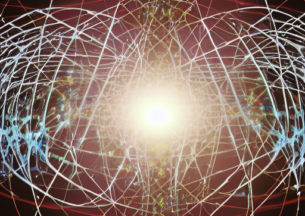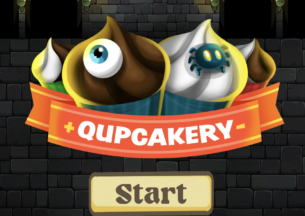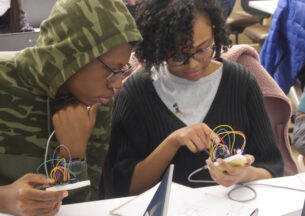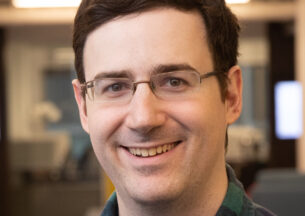EPiQC Zines Offer Creative Gateway to Quantum Computing
The zine format — miniature, self-printed booklets — is typically associated with punk rock, comics, and other DIY cultures. But a new outreach effort from the UChicago CS research group Enabling Practical-Scale Quantum Computation (EPiQC) utilizes zines to educate students and the public about the highest of tech: quantum physics and computing.
So far, a team of EPiQC staff, undergraduate and graduate students, and freelance artists have produced 8 zines, covering topics from the history of quantum computing to superposition, entanglement, and reversibility. With playful illustrations and helpful examples, the issues aim to break down quantum computing into digestible servings for non-scientists and scientists alike…in just eight pages apiece.
“Quantum computing has even lower diversity than computer science in general, and we want to reach a broader audience in workforce development,” said Diana Franklin, research associate professor with UChicago CS and lead PI for quantum computing education for EPiQC. “We wanted to think of ways that we could make the topic seem less intimidating and more accessible for computer science undergraduates or the public.”
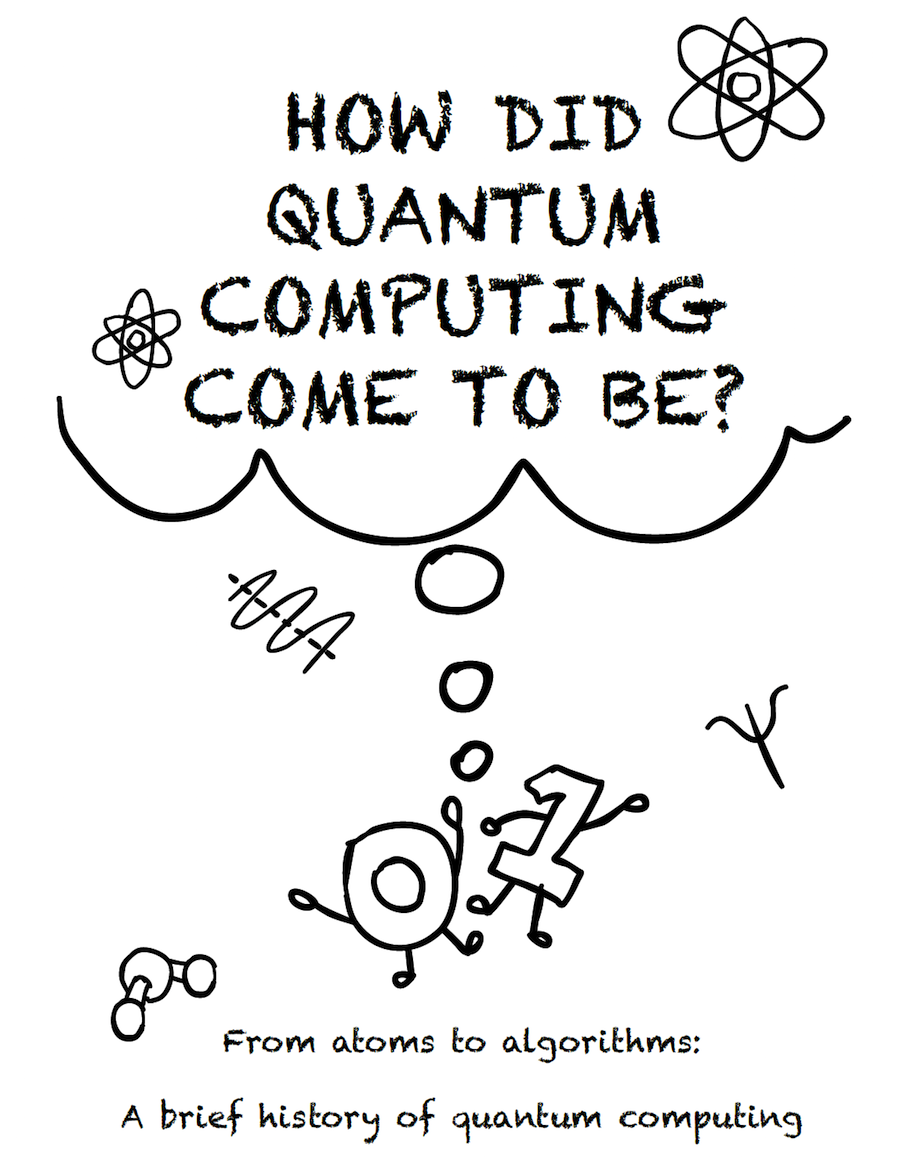
The idea started with comic books, Franklin said, with the EPiQC outreach team brainstorming superheroes with powers inspired by quantum principles such as the ability to transform between a wave and a solid form. But over time, the concept evolved to the more open format of the zine, where comic elements can exist next to mathematical equations, code snippets, and other more technical details.
Each issue is designed to cover multiple audiences, with the first third an introduction for a general audience, the middle section appealing to readers with a background in computer science, and the final pages diving deeper to cover a core concept from today’s quantum computing research.
For example, a zine on superposition — the concept that quantum states can be described as the sum of multiple distinct states — starts with the common analogy of a spinning coin, equally likely to land as heads or tails. From there, it introduces one of the best-known quantum algorithms, Grover’s search algorithm, which underlies the potential use of quantum computers to quickly find a particular variable in a large dataset. Finally, it describes the Hadamard gate, how quantum scientists notate the coin-flip like superposition of a single qubit.
“We hope that when students are looking for summer research and they see our group they can find our zines,” Franklin said. “Maybe they’ll think “quantum computing, I don't know anything about that,” but then they see our zines and think “oh, that's not as crazy as I thought!””
After handing out some of the earliest zines at a National Science Foundation event, they received broader attention on the Computing Community Consortium blog, where chair Mark D. Hill praised the project as a unique approach to a dense, but increasingly trendy topic in computing.
“One might think that comic books would not be able to convey complex information like the ideas behind QC,” Hill wrote. “In this case, one would be wrong, at least for one as creative as the University of Chicago’s Diana Franklin, as part of the National Science Foundation (NSF) funded EPIQC Expedition in Computing…In my humble opinion, these are great examples of the synergy possible with research and education done together.”
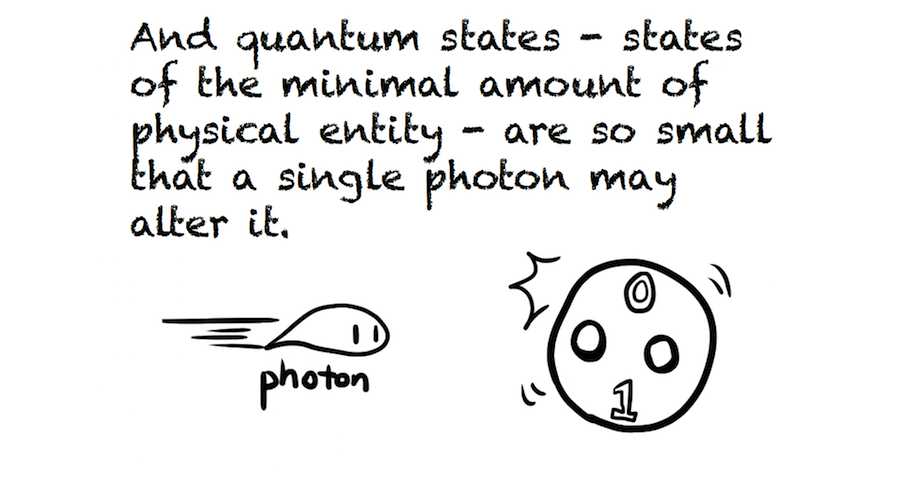
The EPiQC zine team already has plans for the next few installments, Franklin said, and continue to refine the already-published issues for greater clarity and different initiatives, such as the “quantum computing in a box” curriculum they’re developing for museums. And the education is bidirectional; by brainstorming different approaches to explaining quantum concepts and testing ideas on each other, they’ve expanded their own knowledge as well.
“We're using this to educate our own team too. As we're working on a zine, we discuss all the concepts and that ends up training everybody to a certain degree,” Franklin said. “It’s a lot better than reading a textbook!”
The zines were written by Franklin, education outreach director Randall Landsberg, graduate student Kartik Singhal, undergraduate student Elizabeth Crowdus, and curriculum development specialist Jen Palmer Hellige. Art was created by computer science undergraduates Woorin Jang and Ruolin Zheng and artist Leona Perine.
Further coverage of the EPiQC zines can be found at HPCWire.


